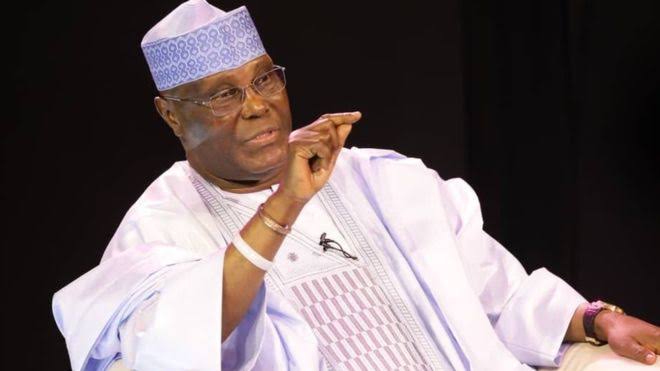Resigned, not retired: Atiku’s political exit from the PDP and the dream that refuses to die

Atiku dumps PDP — What this means for 2027 elections
By Anjolaoluwa Ogunpitan
Former Vice President Atiku Abubakar has once again stirred Nigeria’s political waters with his announcement of resignation from the Peoples Democratic Party (PDP)—a party he has long represented and heavily financed. While the move sent shockwaves across the political landscape, for many Nigerians, especially the youth, it symbolizes more than a change of political affiliation—it reflects a cycle that stubbornly refuses to end.
Atiku’s political career spans more than three decades. From his early attempt during the 1992 SDP presidential primaries to his time as Vice President under President Olusegun Obasanjo, and his repeated bids for the presidency in 2007, 2011, 2015, 2019, and 2023, Atiku has never wavered in his ambition to lead Nigeria. Now aged 78 and still active on the political scene, many are left wondering: how far is too far?
Despite never winning the presidency, Atiku remains a dominant figure in Nigerian politics. But his enduring presence in the race raises broader questions. What has changed since 1992 that keeps fueling this ambition? For Generation Z voters—many of whom were not born when Atiku began his journey—his persistence is viewed less as seasoned experience and more as an impediment to generational change.
In Nigeria, the official retirement age for civil servants is 65. Atiku, now nearing 80, continues to aspire to the most demanding job in the country, while many of his peers have long exited public life. His determination reflects not only personal ambition but also the entrenched stagnation of Nigeria’s political elite. For many young Nigerians, the situation is frustrating: new political actors struggle to emerge while the old guard recycles itself repeatedly.
Reactions to Atiku’s departure have been mixed. Some see it as a strategic recalibration, while others regard it as betrayal or political suicide. In truth, it marks a significant blow to the PDP. Atiku has long served as the backbone of the party’s national appeal, and his exit threatens to further fracture the PDP as the 2027 elections draw closer.
Chief Bode George, a prominent PDP chieftain, has blamed Atiku for the party’s continued woes. However, George’s own track record raises eyebrows—he has failed to deliver his ward to the PDP in every general election since 1999. His criticism therefore rings hollow. Governor Seyi Makinde of Oyo State also downplayed the resignation as “inconsequential,” yet he, along with former Governor Nyesom Wike, openly undermined the PDP during the 2023 elections. Unlike them, Atiku has never worked against his party, even in defeat. He has remained outspoken yet loyal—a trait that, whether admired or critiqued, reflects his political integrity.
Atiku may have left the PDP, but he has not abandoned his presidential ambition. Whether viewed as unyielding resilience or desperate obsession, his persistence exposes a deeper flaw in Nigeria’s political system: a space where ambition rarely retires, older politicians cling to power, and the youth are left questioning whether their time will ever come.

